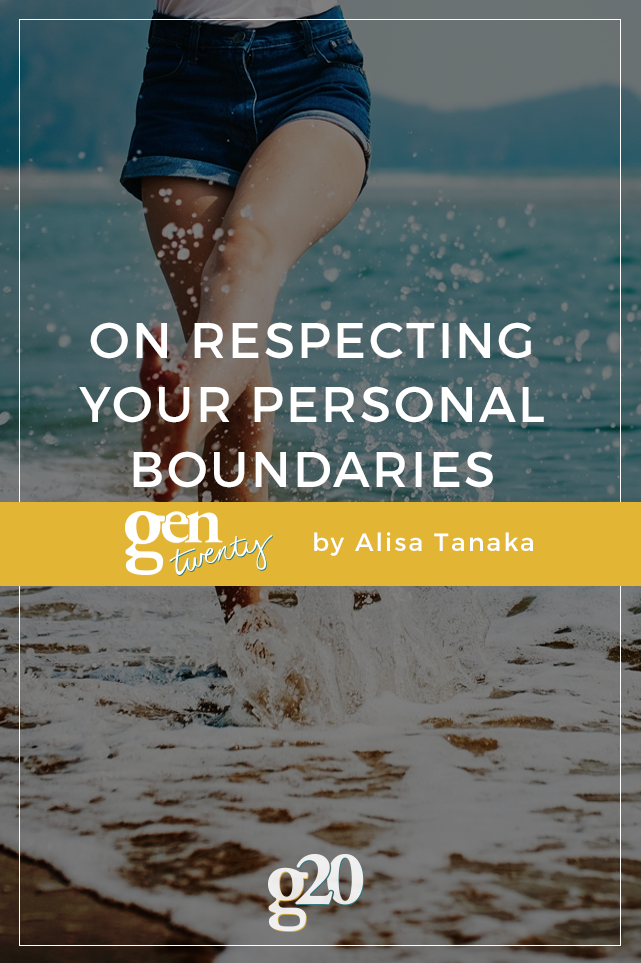
As a child and subsequently as a teenager, I put other people’s needs before my own. I believed that doing so would win me their approval. However, I didn’t account for how emotionally taxing it would be for me to overstep my personal boundaries all the time.
I would tell people that I wanted to do things when the truth was that I didn’t want to do them, or I’d do things even if my instincts were screaming at me not to. Ignoring that inner voice left me with less time to exercise self-care. That lack of self-care left me less mentally healthy and less able to do my job.
I didn’t tell anyone that I would rather not do the things when I had the opportunity to do so, which meant that there was no one to blame but myself. I had agreed to take on too much. I was the one who didn’t listen to my instincts.
It wasn’t until recently that I started to learn to express how I felt. I’m not perfect at it by any means, but I have become much more vocal about my personal boundaries. Here’s what I have learned:
1. Be Vocal
When I say “be vocal” I don’t mean being loud. Rather, I would encourage you to assert yourself and communicate. There is a difference between being assertive and being loud.
If there are things that you’d rather not do, express how you’re feeling. Say something to someone you trust, or better yet, to the person who asked you to do that thing that you don’t want to do.
As a co-worker once told me, “It does you no good to express these emotions to me; rather, it will help you much more if you talk to the person in question.”
While I tend to disagree about whether or not speaking to someone you trust before speaking to the person you really need to speak to is beneficial, I do see their point. This is especially true when you’re respecting your personal boundaries by expressing what you would rather not do.
2. Be Real
Let’s be real here: No one is a mind reader. How, then, do you expect people to understand what you do and don’t want to do if you don’t tell them?
This is not to say that you will always get your way or that the person you’re communicating with will be understanding. However, I’m willing to bet that (like me) you will find that the majority of the time, people will acquiesce to your requests and respect your personal boundaries.
Moreover, expressing that you are unable or unwilling to do something will more than likely earn you the respect of your peers. They will understand exactly where you stand and what you can handle. Beyond the respect of your peers, you will be respecting yourself, which feels great.
Since arriving in Taiwan to begin a new job, I have had to respect my personal boundaries even more than I did when I was living in the United States. There have been many times when people have invited me out to do things and socialize that I have turned down largely because I know that I will be spending more time pretending to have fun than actually having fun.
I can’t tell you how satisfied I feel when I listen to my body and cancel plans when I’m super tired. I can’t overstate the importance of listening to your body and respecting how you feel. If you know that you’re going to be putting more energy into pretending to have fun than actually having fun, don’t do it.
[clickToTweet tweet=”“I’d rather be hated for who I am, than loved for who I am not.” – Kurt Cobain” quote=”“I’d rather be hated for who I am, than loved for who I am not.” – Kurt Cobain”]
Pretending to have fun will make people think that you like things that you really don’t. If they think you like things that you don’t, you won’t have a chance to be authentic. I have learned from personal experience that it takes a lot more energy to maintain a facade than to be yourself. As Kurt Cobain said, “I’d rather be hated for who I am, than loved for who I am not.”
Your Boundaries Are Not The Same As The Same As The Person Next To You (And That’s Okay)
I know that I am an introvert, and I need time alone to recharge and regroup. As such, I often elect to stay home and rest after a long day rather than go out. To some, I may seem anti-social, but I know that I’m not. I simply don’t go out as often as other people. Respecting your boundaries and knowing what kind of person you are helps tremendously in putting yourself first.
I am a visual person, and I have to write things down if I don’t want to forget them. Writing down the things I have to do in a list helps me understand what I currently have going on. It gives me a visual reminder of deadlines, allows me to clarify how I feel, and let off steam.
I know that writing things down helps me to maintain my personal boundaries and ensure that I don’t take on too much, but that doesn’t mean that my methods of maintaining my boundaries work for everyone else, especially since everyone works in different ways. Finding little things that can help you to maintain your personal boundaries can help you respect them.
Everyone is different; therefore each of our respective boundaries will be different. No one should make you feel wrong for respecting your own limits, least of all yourself.
[clickToTweet tweet=”No one should make you feel wrong for respecting your own limits, least of all yourself.” quote=”No one should make you feel wrong for respecting your own limits, least of all yourself.”]
